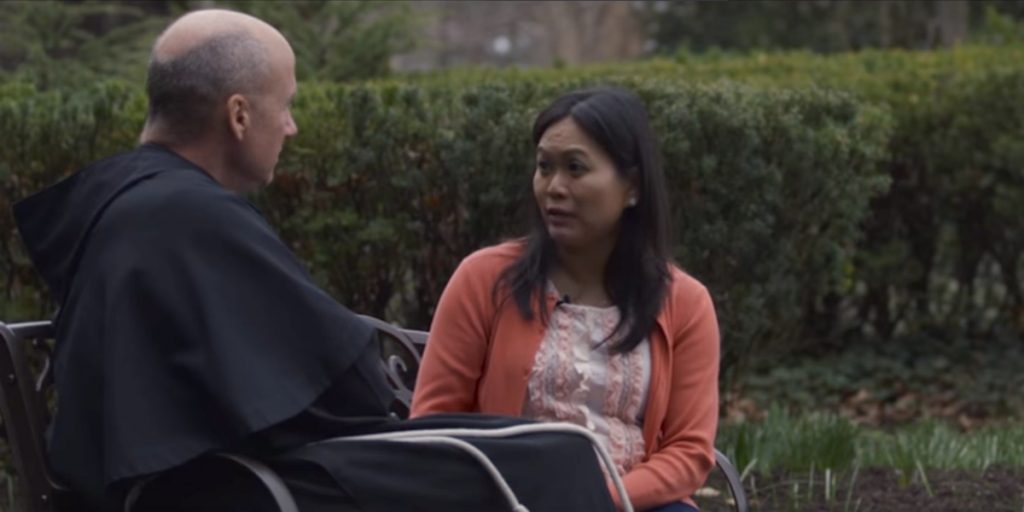Spiritual direction has risen in popularity in recent years as people off all faith traditions seek guidance on their spiritual journeys. This article will explore the basics of spiritual direction — what is spiritual direction, what to expect in spiritual direction, and who needs spiritual direction — as well as considerations for Catholics and other Christians interested in seeking spiritual guidance.
What is Spiritual Direction?
Spiritual direction is a contemplative process of seeking a guide in one’s relationship with God. “Contemplative” refers to spiritual practices that are passive, quiet, and reflective, waiting for God to respond, rather than active, full of talking and doing.

Spiritual Directors International, a professional organization of spiritual directors, explains that spiritual direction nurtures growth in one’s relationship to the divine, however the believer understands it (Spiritual Directors International). Those seeking growth in their faith are prime candidates for spiritual direction.
The Rev. Margaret Guenther, an Episcopal priest and seminary professor who trains spiritual directors, describes spiritual direction as “holy listening.” She describes the experience as three people- the person seeking spiritual direction, called a directee, the spiritual director, and Jesus- listening together for God’s guidance in the directee’s life (Guenther, Holy Listening).
What to Expect in Spiritual Direction

For Christians, spiritual direction invites another person, one trained in prayer and holy listening, to be a part of one’s relationship with Jesus Christ.
Biweekly or monthly sessions involve spiritual sharing, prayer, and meditation. Sessions occur in a neutral place, such as a retreat center, church, or other activity center at a quiet or off time of the day. A spiritual director might use candles, crosses, icons, or prayers to give the space a peaceful ambiance.
What Happens in Spiritual Direction

Spiritual direction offers a set time for a believer to focus solely on his/her relationship with God. Topics of discussion may include one’s prayer life, struggles with faith, and personal and family history that reflect how one relates to God and the Church.
A good spiritual director will listen more than he/she talks, be supportive yet insightful, and not push to the point of distress unless the directee is willing. Beginning and closing spiritual direction with prayer or meditation is usual, and over time most spiritual directors and directees develop a routine.
Who Needs Spiritual Direction

Traditionally in the Church, three groups of people received spiritual direction: priests, religious, and those considering a priestly or religious vocation. After Vatican II, more believers began to seek guidance and a deeper relationship with God. Today, the following groups of people might best benefit from spiritual direction:
- Those discerning a call to ministry
- Those engaged in active ministry (ministers, church staff, chaplains, missionaries)
- Those called to contemplative prayer
- Those struggling with their faith
- Anyone who desires to explore his/her relationship with God more deeply.
Spiritual direction is a contemplative practice that offers interested believers an opportunity to seek guidance on their spiritual journeys. For many, spiritual direction is a source of healing, rest, and peace in their relationships with God.


















